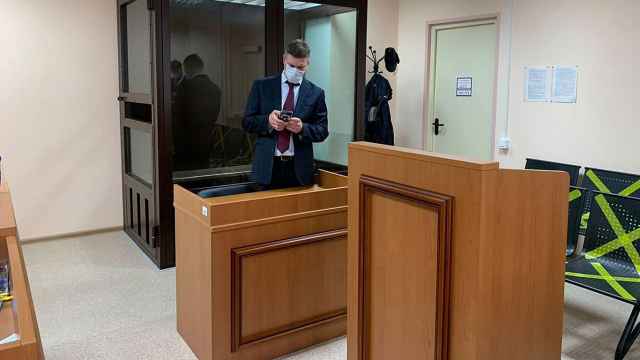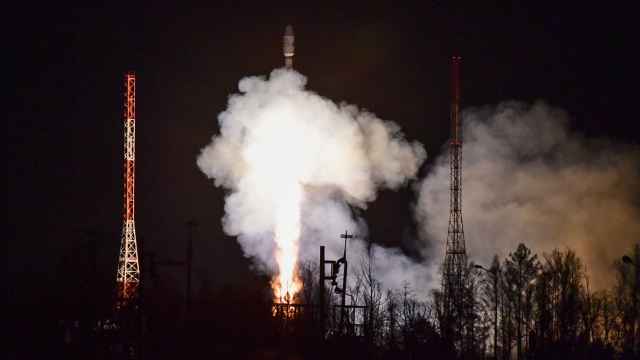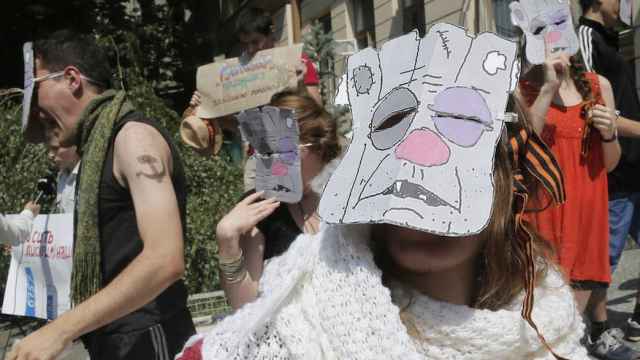Just one day after President Vladimir Putin proposed softening a controversial extremism law in Russia’s Criminal Code, authorities in Siberia seemed to take note by dropping a case against a local man for extremist posts on social media.
Under the legislation proposed by Putin to the State Duma on Wednesday, first-time offenders who post online content that “incites hatred or enmity” would be subject to administrative, rather than criminal, proceedings.
That version of the legislation might have made life easier for Andrey Bezborodov. In February this year, the 35-year-old was charged with inciting hatred after he posted memes on social media that poked fun at Putin and Russian religious leaders. The man from the Siberian city of Krasnoyarsk was charged under the infamous Article 282, which outlaws the incitement of racial, religious or other forms of hate. The charge carries a sentence of up to five years in prison and also often lands offenders on an extremism registry.
On Thursday morning, however — the day after Putin’s proposal — the Investigative Committee in Krasnoyarsk said it was dropping the case because Bezborodov’s posts had had almost no resonance online: None of his 166 online friends had “liked” the memes he shared.
While the ruling itself was penned just days earlier in September, it seemed to follow a trend of a softening attitude towards online extremism topped off with Putin’s new proposed legislation.
“While this case wasn’t connected directly to Putin’s proposal, it follows the general tendency,” said Pavel Chikov, the director of the Agora international human rights group. “This case was just the first harbinger. I expect many more to be dropped.”
In recent years, extremism cases have been on the rise in Russia. According to figures provided to The Moscow Times by the SOVA Center, which tracks nationalism and xenophobia in Russia, such cases have increased nearly seven-fold since 2010. The trend came to a head this summer after a spate of cases against young Russians sparked mass outrage.
Against this backdrop, Chikov spoke in favor of the loosening of Russia’s draconian extremism laws, including a Supreme Court recommendation in September that the impact and reach of extremist posts should be taken into consideration.
However, skeptics worry that the president’s proposal is only cosmetic. They also worry that law enforcement officials will simply use other legal mechanisms to continue prosecuting people en masse.
Damir Gainutdinov, Agora’s lead lawyer on extremism cases, says a key failure of Putin’s proposed legislation is that it does not address Russia’s definition of extremism. “We have a very wide definition,” Gainutdinov said. “Pretty much anything can fall under it.”
Accordingly, Gainutdinov believes that the Kremlin is simply trying to reassure an unsettled public. Following the high-profile cases this summer, some Russians started taking down their social media profiles in fear of being prosecuted for memes, and media outlets released instructions on how to avoid getting charged.
“They didn’t build this repressive system simply to then back down to the people; our government doesn’t do that,” said Gainutdinov. “These are simply cosmetic changes to calm people down.”
One factor that Gainutdinov says will not stop people from being charged for their activity online is that law enforcement officials are tasked with fulfilling arrest quotas. Administrative proceedings, Gainutdinov said, are also counted — and can be even more repressive, with offenders prevented access to lawyers or fair trials.
Indeed, Alexander Verkhovsky, the director of SOVA Center, said that one of the main reasons why Article 282 became a favorite of law enforcement officials in recent years was for “bureaucratic reasons.”
“It’s very simple,” he explained. “In 30 minutes at your desk you can find the evidence just by searching around on Vkontakte. And it is very easy to prove to a judge: Here’s the post or the ‘like.’”
Verkhovsky also noted that Article 282 is not the only extremism statute that law enforcement officials prosecute. The SOVA Center, he said, tracks nine others. And while the center found 461 cases under Article 282 in 2017, that same year also featured 108 under Article 280 and 96 under Article 205.5 — a 10-fold increase in just three years.
“If a law exists, then there must be criminals prosecuted under the law,” said Andrey Pertsev, a journalist with the Kommersant business daily and a regular contributor to The Carnegie Moscow Center. “This is how our law enforcement officials think.”
Another factor that skeptics of Putin’s proposals point to is that Russia’s law enforcement agencies often jostle for power. And while Article 282 is the Investigative Committee’s jurisdiction, Articles 280 and 205.5 are the FSB’s. As Gainutdinov argues, the FSB “is simply pulling the blanket over to its side of the bed.”
On Thursday, Agora’s director, Chikov, said he would take a wait-and-see approach. In the meantime, he did not exclude that, after a “short-term liberalization, we will see a jump in such cases.”
If that happens, Bezborodov, who had just gotten off scot-free earlier Thursday, jokingly suggested the authorities take a more drastic measure. “Memes are just jokes,” he said by phone. “If the authorities are so offended by them, maybe they should just shut down the internet.”
A Message from The Moscow Times:
Dear readers,
We are facing unprecedented challenges. Russia's Prosecutor General's Office has designated The Moscow Times as an "undesirable" organization, criminalizing our work and putting our staff at risk of prosecution. This follows our earlier unjust labeling as a "foreign agent."
These actions are direct attempts to silence independent journalism in Russia. The authorities claim our work "discredits the decisions of the Russian leadership." We see things differently: we strive to provide accurate, unbiased reporting on Russia.
We, the journalists of The Moscow Times, refuse to be silenced. But to continue our work, we need your help.
Your support, no matter how small, makes a world of difference. If you can, please support us monthly starting from just $2. It's quick to set up, and every contribution makes a significant impact.
By supporting The Moscow Times, you're defending open, independent journalism in the face of repression. Thank you for standing with us.
Remind me later.







